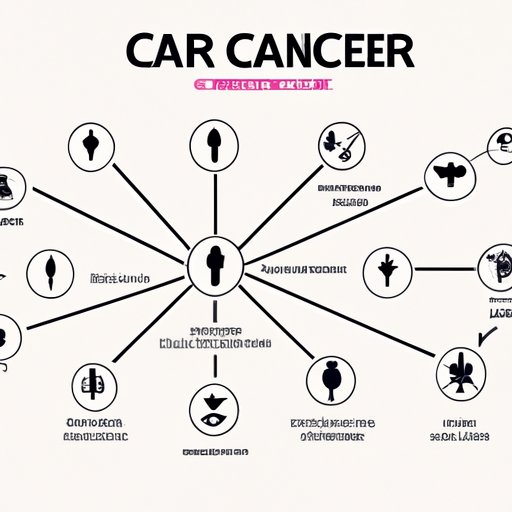
Introduction
Cancer is a complex disease where abnormal cells in your body grow uncontrollably. It can develop in any part of your body and often has no specific cause. It is important to understand and explore how cancer develops to reduce the risk of developing it in the future. In this article, we will discuss some surprising ways you can develop cancer and how to reduce your risk.
5 Surprising Ways You Can Develop Cancer – and How to Reduce Your Risk
While we all know that smoking and a poor diet increase the risk of cancer, there are other lesser-known risks that we should also be aware of. For example, environmental exposures to substances such as radon and asbestos can increase the risk of cancer. Certain medications, such as hormonal birth control and some heart medications, can also increase the risk of certain types of cancers.
To reduce your overall risk of cancer, it is essential to take steps to reduce your exposure to these risks. For example, testing your home for radon levels, avoiding exposure to asbestos, discussing alternative medications with your healthcare professional, getting vaccinated against human papilloma virus (HPV), and reducing your alcohol consumption are all practical ways to reduce your risk.
Cancer Prevention 101: Understanding the Top Contributing Factors
Smoking, a poor diet, lack of exercise, and being overweight or obese are some of the top contributing factors to cancer risk. Quitting smoking, eating a balanced diet that is high in fruits and vegetables, engaging in regular physical activity, and maintaining a healthy weight are all ways to reduce your cancer risk.
Additionally, exposure to certain substances at work may also increase the risk of cancer, such as benzene and other chemicals. Limiting exposure to these substances, wearing protective gear, and ensuring a well-ventilated workspace can help reduce the risk.
Could Your Lifestyle Be Increasing Your Cancer Risk?
Your lifestyle habits can also have an impact on your cancer risk. For example, excessive exposure to the sun, frequent tanning, and lack of proper skin protection can increase your risk of skin cancer. Other factors such as stress, lack of sleep, and poor oral hygiene can also increase cancer risk. To reduce your risk, it is important to assess your lifestyle habits and make changes where needed.
For example, wearing sunscreen, avoiding tanning beds, practicing stress-reducing techniques, getting enough sleep, and maintaining good oral hygiene habits can all help reduce your cancer risk.
Understanding the Role of Genetics in Cancer
Mutations or changes in specific genes can increase the risk of developing certain types of cancer. If you have a family history of cancer, it may be beneficial to speak with a genetic counselor who can help determine if genetic testing is necessary and provide guidance on how to reduce your risk.
Those with certain genetic mutations, such as the BRCA1 and BRCA2 mutations, have a higher risk of developing breast and ovarian cancer. In these cases, preventative measures such as prophylactic surgery and more frequent cancer screenings may be recommended.
The Environmental Impact on Cancer: What You Need to Know
The environment can also play a significant role in cancer risk. Exposure to pollutants, pesticides, and other chemicals can increase cancer risk. Drinking and using contaminated water, inhaling air pollution, and living near toxic waste sites are examples of environmental exposures that can increase the risk of cancer.
To reduce your environmental exposure to cancer-causing substances, it is important to take precautions, such as drinking filtered water, using non-toxic cleaning products, avoiding the use of pesticides, and limiting unnecessary exposure to pollutants. Additionally, advocating for stronger environmental regulations can also help reduce cancer risk on a larger scale.
Conclusion
Cancer is a complex disease, but by understanding the risk factors and taking preventative measures, we can reduce our risk of developing cancer. From lifestyle habits to environmental exposure, it is important to assess all the possible contributing factors and take steps to reduce your risk. By making healthy choices and advocating for a clean environment, we can work towards a healthier and cancer-free future.





